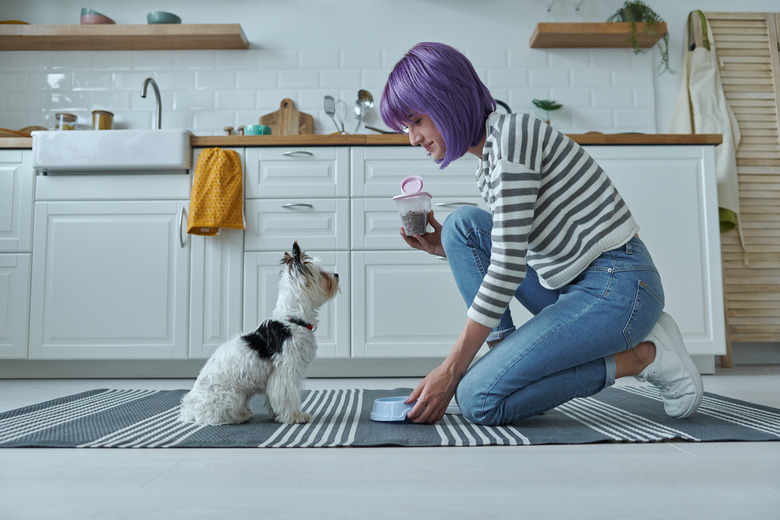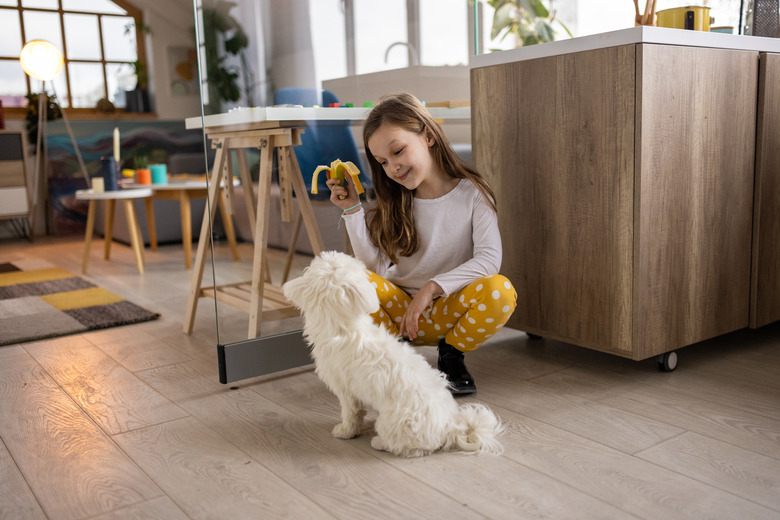Is Baking Soda Bad For Dogs? Yes, And Here's What To Do If Your Dog Eats Baking Soda
Just about every home has a small box of baking soda somewhere, even if the dog owner doesn't remember buying it. Chemically known as sodium bicarbonate, baking soda is a great odor absorber and cleaning product, and it can even be used to treat fleas on cats. While it has many cleaning applications, it is most commonly used for baking, as it's what makes cakes and biscuits rise. However, one thing baking soda isn't great for is pets, and it can be potentially deadly if ingested by a dog.
Why isn’t baking soda safe for dogs?
Why isn't baking soda safe for dogs?
The exact thing that makes baking soda such an excellent leavening agent or cleaning product is what also makes it so deadly — namely, that when baking soda is exposed to an acidic substance and heat, it expands. That's great when you put it in a cake with a little lemon juice since it softens the dough and adds some sponginess to your dessert. However, it's extremely dangerous when it goes into your dog's stomach and begins expanding, releasing potentially deadly gases into their gut. Ingestion of large amounts of baking soda can result in electrolyte imbalances, congestive heart failure, or muscle spasms.
What to do if your dog eats baking soda
What to do if your dog eats baking soda
If you suspect your dog ate enough to be at risk or if your dog was exposed to baking soda and is now showing the warning signs, contact your veterinarian as soon as possible or head to the closest 24-hour animal hospital. You can also call the Animal Poison Control line at 888-426-4435. Do not induce vomiting unless instructed to do so by the veterinarian or Animal Poison Control. The first sign of danger is usually vomiting. Other symptoms to look out for include lethargy, diarrhea, depression, tremors, seizures, shortness of breath, or disorientation.
Baking soda is only dangerous to dogs when ingested in large quantities. Specifically, a dog must eat at least 1 teaspoon per pound of body weight for the substance to become dangerous.
Your veterinarian can do many things for your pup. They will most likely start with monitoring your dog's symptoms, give them an IV drip for fluids, and administer activated charcoal to prevent the compound from being absorbed into the body. Do not attempt to treat the dog yourself unless told otherwise by a veterinary professional.
Keeping your dog safe from baking soda
Keeping your dog safe from baking soda
Baking soda must be consumed in large quantities to be dangerous, and its expanding properties are deactivated when it's cooked and is therefore not a danger to your dog. Using a little baking soda in something you cook for your pooch is not a problem. Similarly, while you should use an enzyme-based toothpaste to brush your dog's teeth, using a little baking soda as toothpaste shouldn't hurt them, but ask your veterinarian before using it for that purpose. Many dog shampoos contain small amounts of baking soda to neutralize odors, and even if your dog licks off these shampoos, these small quantities aren't enough to cause problems.
It's also important to recognize that baking powder, which is a combination of baking soda, calcium phosphate, and sodium aluminum sulfate, is just as dangerous to dogs as baking soda in large quantities. Both baking soda and baking powder should be kept in the kitchen or bathroom in either a locked cabinet or out of reach of your dog. Never leave these ingredients out on the counter around your dog.
Baking soda is commonly used to deodorize carpets or upholstery. You can continue to do this but always keep your dog out of the room between the time you get the baking soda out and sprinkle it on the carpet and the time you vacuum it up. Be sure to vacuum all of the powder out of the carpet as well.

